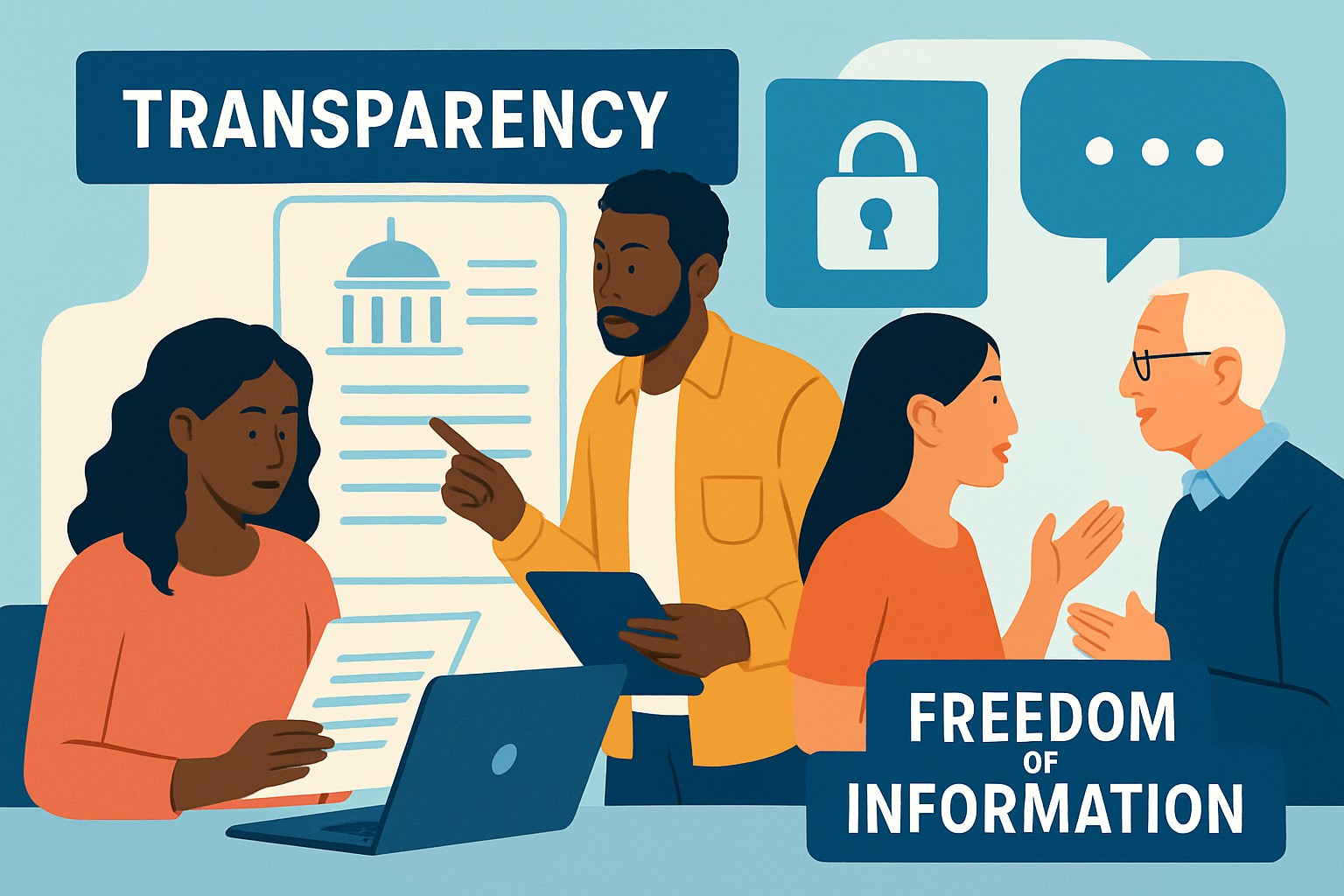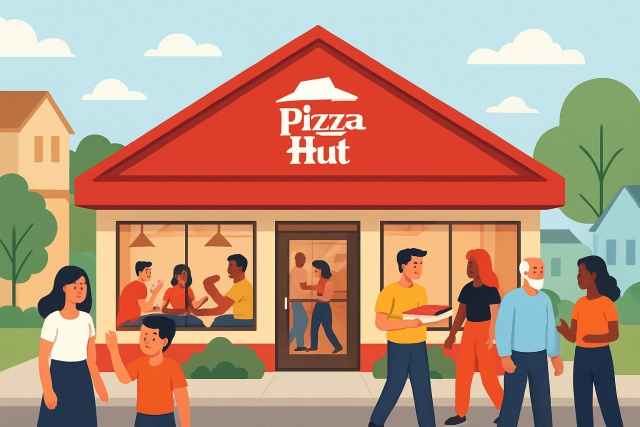Why National Freedom of Information Day 2025 Matters

National Freedom of Information Day 2025 shines a spotlight on the important idea that individuals deserve access to government information. It’s all about transparency and accountability. It gives citizens the power they need because open governments aren’t just a nice-to-have; they’re the backbone of democracy.
What Exactly Is National Freedom of Information Day All About?
National Freedom of Information Day rolls around each year as a reminder to champion openness and transparency in government. It started out as a push to back the public’s right to get their hands on government information.
- Celebrated every year on March 16, Joseph Pulitzer's birthday—a man who stood up for a free press.
- Created to highlight why freedom of information laws matter in our daily lives.
- Mostly recognized in countries with clear FOI laws like the United States and several European nations where transparency matters.
- Events usually feature public talks, media outreach, and the unveiling of transparency reports that reveal what happens behind the curtain.
- The main goal is promoting government accountability, protecting citizens' rights, and encouraging people to stay informed and engaged because knowledge is power.
Understanding Freedom of Information with a Straightforward Overview That Actually Makes Sense
Freedom of information lets people request and get their hands on government documents and data. It offers a clear window into what those in power are up to, helping people make sense of how decisions come about and how public resources are handled.
- Citizens have the right to ask for information held by the government which helps keep things transparent and above board.
- There are some exceptions to protect privacy and national security and those sensitive behind-the-scenes talks that probably shouldn’t see the light of day.
- Transparency often shines a light on corruption, financial mismanagement and inefficiency—no one likes a messy cupboard.
- Having access to this information equips voters to make smarter and more informed political decisions.
- Public scrutiny plays a important role in keeping governments honest and accountable through well-established checks and balances.
Getting to Know the Story Behind National Freedom of Information Day
Freedom of information has always been a cornerstone for democratic movements championing open governance.
Press champions like Joseph Pulitzer hammered home the idea that transparency is the bedrock of any healthy democracy.
Sweden passed the world’s first freedom of information law in 1766, setting the stage for modern laws worldwide.
The U.S. Freedom of Information Act finally saw the light of day in 1966 after years of dogged determination and political wrangling.
National Freedom of Information Day came about to shine a spotlight on FOIA and get people comfortable using it.
Over the years, freedom of information laws have evolved everywhere to keep pace with fresh technologies and the shifting demands of democracy.

An image symbolizing the origins of freedom of information, featuring historical documents and communication tools from early transparency advocacy.
What Makes National Freedom of Information Day 2025 Truly Stand Out
By 2025 digital misinformation will run rampant, government secrecy will lurk in the shadows, and technological advances will move at breakneck speed. Transparent access to information becomes more important than ever.
- Having reliable government-verified data has become more key than ever.
- Getting access to solid information not only helps people push back against false claims but also builds a stronger, more resilient community overall.
- As the ways we store and dig up information keep changing in this digital era, FOI practices really have to keep pace to stay relevant.
- When the government operates with transparency, it chips away at secrecy and goes a long way toward earning public trust—especially when things hit the fan.
- People tend to get more involved through requests and advocacy when they’re in the know about what’s going on at the national level.
Freedom of information is really the bedrock of a healthy democracy. It hands the reins to the people, letting them hold leaders accountable and make smart, informed decisions. In my experience, it’s what keeps governments honest and working in the public’s best interest—no smoke and mirrors allowed.
Clever Ways Citizens and Governments Can Celebrate and Actually Benefit from This Day
National Freedom of Information Day offers a great chance for citizens and governments alike to boost transparency and spread the word a little further. Whether you’re firing off information requests or putting together educational campaigns, this day nudges us all toward deeper democratic engagement.
Jump in or organize community events that break down FOI laws and people’ rights in a way everyone can get—no jargon, just the essentials.
Send out FOI requests yourself to not only boost transparency but also to roll up your sleeves and learn the ropes firsthand.
Share compelling stories and spread the word about FOI on social media—it’s all about sparking curiosity and keeping the conversation alive.
Back initiatives that beef up transparency laws and push for governments to be more responsive—because sometimes they need a little nudge.
Teach students and friends why freedom of information truly matters and show them the ropes on how to make it work for them.
Common Misunderstandings About Freedom of Information Clearing Up the Confusion
Many individuals tend to mix up freedom of information with the notion that every government secret should spill out into the open or that it throws a wrench in how government runs.
- FOI does not mean every bit of information is out there for grabs because sensitive details are still carefully tucked away.
- It’s not just a tool for journalists. Anyone can put in a request if they feel like it.
- FOI laws are designed to cut down on red tape and delays while avoiding bogging down government actions.
- Security stays intact thanks to exemptions that cover national defense and personal privacy.
- FOI laws and procedures can vary quite a bit from one country or region to another so there’s no one-size-fits-all playbook.
What the Future Holds for Freedom of Information
As we approach National Freedom of Information Day 2025, technology keeps charging forward while freedom of information faces a mix of fresh hurdles and exciting opportunities. Artificial intelligence can certainly speed up the whole request processing bit, though concerns around privacy and data security mean we need to rethink and update our guidelines.
- Using AI to speed up the processing of FOI requests and give a real boost to how information is shared making the whole experience smoother for everyone involved.
- Striking the right balance between transparency and the ever-evolving data privacy rules which can sometimes feel like walking a tightrope.
- Creating improved digital platforms that actually make accessing government information as straightforward as possible—no more jumping through hoops.
- Collaborating internationally to standardize and strengthen FOI protections worldwide because when it comes to openness teamwork really does make the dream work.
- Expanding public education efforts to raise awareness and gently nudge individuals toward actively using their FOI rights helping information flow more freely and keeping democracy vibrant.





